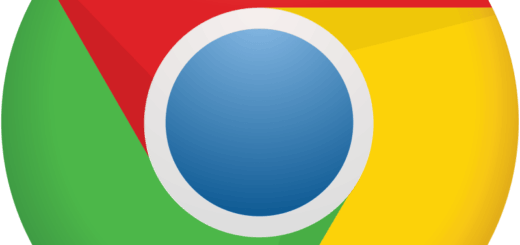Revolutionizing Healthcare: The Power of Technology

Technology has profoundly impacted the healthcare industry, significantly revolutionizing medical treatments and enhancing patient care.
Advancements in medical devices, such as MRI scanners and laser surgery, have greatly improved treatment precision and efficiency.
The internet has provided healthcare professionals with greater access to medical resources and information, keeping them updated with the latest research and treatment guidelines.
Communication technology has also played a crucial role in improving communication between patients and medical personnel and facilitating the delivery of medical treatments.
Moreover, the use of technology in healthcare has resulted in faster disease detection and treatment, personalized care, and reduced medical costs.
The future holds great promise for technology in healthcare, with the potential to further reduce human errors, enhance patient access to medical records, and elevate the overall quality of patient care.
Despite a few disadvantages, the advantages of technology in healthcare far outweigh any drawbacks.
The Impact of Technology on Precision and Efficiency in Medical Treatments
Advancements in medical devices, such as MRI scanners and laser surgery, have improved precision and efficiency in medical treatments. These technologies have significantly improved surgical outcomes by giving surgeons a more accurate view of the patient’s anatomy, enabling them to perform procedures with greater precision.
MRI scanners, for example, provide detailed images of the internal structures, aiding in identifying and localizing tumors or other abnormalities. Additionally, laser surgery has revolutionized various procedures by offering minimally invasive alternatives with enhanced precision.
These advancements have also had a profound impact on diagnostic accuracy. MRI scanners have significantly improved the detection and characterization of various diseases, while laser surgery has allowed for precise tissue removal during biopsies.
Overall, these technological advancements have contributed significantly to enhancing the precision and efficiency of medical treatments.
Enhancing Patient Access to Information Through Health Information Technology
Increased patient access to information is facilitated through health information technology, allowing for improved communication and empowerment in healthcare decision-making. This technology has revolutionized the healthcare system by enhancing patient empowerment and patient-provider communication.
- Health information technology enables patients to access their medical records and test results online, empowering them to take an active role in healthcare decisions.
- Electronic communication tools such as secure messaging and telehealth platforms enable patients to communicate directly with their healthcare providers, enhancing patient-provider communication and enabling timely access to care.
- Health information technology also facilitates the sharing of information among healthcare providers, ensuring that all care team members have access to the most up-to-date patient information, leading to more informed and coordinated care.
Overall, health information technology is crucial in improving patient empowerment and enhancing patient-provider communication in healthcare.
Communication Technology’s Role in Revolutionizing Medical Treatments
Communication technology has played a significant role in transforming medical treatments. It has facilitated efficient and seamless communication among healthcare professionals, improving patient care.
Telemedicine is one application of communication technology that has dramatically improved access to healthcare services. It allows healthcare providers to remotely diagnose, treat, and monitor patients using video conferencing and other digital communication tools. This is especially beneficial for individuals in remote or underserved areas.
Another vital application of communication technology in medical treatments is remote monitoring. Healthcare professionals can monitor patients’ vital signs, medication adherence, and overall health status through wearable devices and sensors in real-time. This enables early intervention and personalized care.
Integrating artificial intelligence (AI) in healthcare has further enhanced communication technology’s role in medical treatments. AI-powered systems can analyze vast amounts of medical data, assist in diagnosis, and suggest treatment plans. This improves clinical decision-making and patient outcomes.
Advancements in Medical Technology: Improving Detection and Personalized Care
The development of medical technology has led to significant improvements in disease detection and the provision of personalized care. This has been achieved through various advancements, including:
- Pharmacogenomics in personalized care: Medical technology has allowed for the implementation of pharmacogenomics, which combines genetic information with drug therapy to tailor treatments to individual patients. By analyzing genetic variations, healthcare providers can determine each patient’s most effective medications and dosages, resulting in improved treatment outcomes.
- Cost-effectiveness of medical technology: Although expensive, it has proven cost-effective in the long run. By improving disease detection and providing personalized care, medical technology reduces the need for unnecessary procedures and treatments, ultimately reducing healthcare costs. Additionally, using technology in healthcare streamlines processes, improves efficiency, and minimizes errors, contributing to cost savings.
Overall, advancements in medical technology, particularly in pharmacogenomics and cost-effectiveness, have revolutionized disease detection and personalized care, ultimately improving patient outcomes and reducing healthcare costs.
The Future of Healthcare: Harnessing the Power of Technology
Society’s growing reliance on advancements in medical technology is expected to shape the future of healthcare. As technology continues to evolve, it brings forth both opportunities and challenges.
One of the critical considerations is the ethical implications of technology in healthcare. The use of technology raises questions about privacy, data security, and patient autonomy.
Additionally, there are challenges in implementing health information technology. These include issues related to interoperability, data standardization, and resistance from healthcare professionals. Ensuring the seamless integration of technology into healthcare systems requires careful planning, stakeholder engagement, and robust infrastructure.
Despite these challenges, the potential benefits of technology in healthcare are vast. It can improve patient outcomes, enhance clinical decision-making, and increase efficiency in healthcare delivery.
However, it is crucial to address the ethical concerns and overcome the challenges to harness technology’s power in healthcare fully.
Frequently Asked Questions
How Has Technology Improved Precision and Efficiency in Medical Treatments?
Advancements in technology, such as improved diagnostics and robotic surgery, have enhanced precision and efficiency in medical treatments. These technological innovations allow for more accurate diagnoses and precise surgical procedures, improving patient outcomes.
What Are the Benefits of Enhanced Patient Access to Information Through Health Information Technology?
Enhanced patient access to information through health information technology has benefits such as improved patient engagement and empowerment in self-care. Patients can make informed decisions and take an active role in managing their health.
How Does Communication Technology Play a Role in Revolutionizing Medical Treatments?
Communication technology, such as telemedicine integration and remote patient monitoring, significantly revolutionizes medical treatments. It allows for effective communication among healthcare professionals, enables remote access to patient information, and facilitates the delivery of medical treatments directly to patients.
What Advancements in Medical Technology Have Improved Disease and Injury Detection and Treatment?
Advancements in medical technology, such as artificial intelligence in diagnostics and robotic-assisted surgeries, have improved disease and injury detection and treatment. These technologies enhance precision, efficiency, and personalized care in healthcare.
What Does the Future Hold for Healthcare in Terms of Harnessing the Power of Technology?
The future of healthcare holds promising advancements in harnessing the power of technology. Virtual reality in healthcare and artificial intelligence in medical diagnostics have the potential to revolutionize patient care and improve clinical outcomes.








Recent Comments